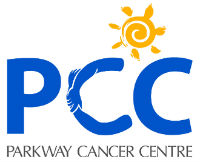Content provided by Parkway Cancer Centre
Kidney cancer: When toxic cells invade
The kidneys are crucial in helping the body clear toxins but what happens when uncontrolled toxic cancer cells develop in one or both of them? This uncommon cancer has been rising in incidence in recent years.
Sign up now: Get ST's newsletters delivered to your inbox
Fong Mue Chern
Follow topic:

What is kidney cancer?
Our kidneys, which lie behind the stomach and on either side of the spine, are a pair of organs responsible for forming urine. Urine, which holds toxins produced by the body, then drains from the kidneys through the ureters into the bladder.
Kidney cancer - also known as renal cancer - occurs when the cells that make up one or both kidneys become cancerous.
While this uncommon cancer currently accounts for less than one per cent of cancer cases in Singapore, rising incidences have been seen in recent years.
Types of kidney cancer include renal cell cancer, renal pelvis cancer and Wilms tumour.
Renal cell cancer is the most common of kidney cancers with about two in three diagnosed with kidney cancer coming down with renal cell cancer, where a tumour forms in the linings of the tiny tubes in the kidney which are supposed to filter the blood and remove waste from it.
In renal pelvis cancer, a tumour forms in the centre of the kidney where urine collects, while Wilms tumour usually develops in children under the age of five.
What are the symptoms?
The most common symptom of kidney cancer is blood in the urine. Urine may appear pink, red or brown (cola coloured). While cancer may not be the only cause of blood in the urine, a doctor should be consulted immediately.
Other symptoms include a lump or mass on one side of the tummy, pain just below the ribs, extreme fatigue, weight loss and anaemia.
Intermittent fevers that last for several weeks may be another symptom of kidney cancer.
How is this cancer diagnosed?
As with many cancers, the difficulty in diagnosis lies in its lack of early symptoms.
Blood and urine tests, however, may give a first indication of how well the kidneys are functioning.
If kidney cancer is suspected, a CT (Computerised Tomography) scan, which uses X-rays and a computer, is done to look at the kidneys in detail. In most cases, this is sufficient to confirm a diagnosis.
Other diagnostic tests, such as studying the blood supply of the tumour (arteriogram), using magnets and radio waves to study the tissues (Magnetic Resonance Imaging or MRI), or removing a small piece of tissue (biopsy) from the tumour may also be carried out.
What are the treatment options?
Surgery is the most common treatment for kidney cancer and the removal of part or a whole kidney is known as a nephrectomy.
A person can live a normal lifespan with only one kidney if the other kidney is normal.
Molecularly targeted drugs and immunotherapy, the use of chemicals or proteins to boost the body's own immune system, may be used in cases of advanced kidney cancer to help prolong life.
Molecular targeted therapy has also been used effectively in recent years to stop or slow the spread of cancer in metastatic kidney cancer.
Who is at risk and how can we prevent it?
The exact causes of kidney cancer are unknown but it is more common among those aged 60 years old and older.
It is also more common in men than in women.
In Singapore, kidney cancer is the ninth most frequent cancer affecting men according to The Singapore Cancer Registry from 2009 to 2013.
Studies also point to smoking, obesity and high blood pressure as risk factors.
Patients on long-term kidney dialysis or who have relatives with kidney cancer are also more at risk of the disease.
Other risk factors include occupational exposure to asbestos, cadmium and petroleum by-products.
Prolonged ingestion of painkiller medication such as Aspirin and Panadol may pose increased risk of kidney cancer too.
Hence for smokers, it is important to quit smoking and for those who are obese, they should be encouraged to lose weight.
People working in occupations which entail exposure to the abovementioned chemicals need to go for regular check-ups.
Find out more about cancer and how to fight it on ST's Fighting Cancer microsite.

